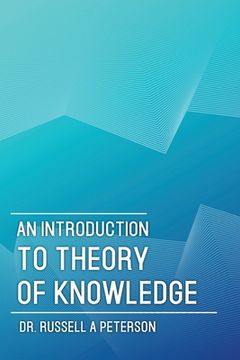Synopsis "An Introduction to Theory of Knowledge (in English)"
INTRODUCTION: There have been very few major works written in the field of epistemology during the past couple of decades. For the learning theorist, this has been unfortunate. The absence is quite evident as we review the writing of these theorists. How thin is learning theory when it has not been grounded on theory of knowledge.It has not been my intention, however, to write a major work in epistemology, offering something new in theory; moreover, I have not made any attempt to provide an historical perspective of what epistemologists over the past twenty-five years have given us. While questions pertaining to learning theory are to be found on every page of the book, there has not been a studied attempt to 'unite' epistemology and learning theory.Rather, I have set for my goal a discussion of eight major epistemological problems. I do not pretend to say that all questions raised have been answered for every reader. They have been answered to my satisfaction, however. Perhaps the essence of the discussion will assist you to formulate your own answers.The first question I raise is this one. I believe that the existence of knowledge is the ability of the mind to interiorize its essence or materials. In what ways, then, can we raise questions about knowledge unless we understand the implicative values inherent in the fact of knowledge? Does this force us to begin with knowledge as a given? To do so would insist we think of the intellective process as the embodiment of a knowledge in order to experience knowledge. Our question then, is knowledge a given?Two, the product of thought, is this the only means at our disposal for identifying knowledge?Three, why do we believe that the mind is not a receptor of knowledge?Four, why do we insist that it is the will that supplies the mind with its power to think?Five, what is the science of perception? Why is its task to formulate the criteria of reality?Six, why is it that in perception alone we are able to see why the mind uses meaning to find meaning?Seven, why does the mind find it necessary to order and provide the cognitive energy for the operant principles which direct the knowing power found in certitude?Eight, what is really being implied when we say that, to know, means the subject has actualized its object and experienced its meaning?If there is a theory which may be, in one sense, labelled new, in this work on epistemology, it would be in reference to my use of the concept experience. Is there knowledge or meaning unless the mind experiences? is the one question which I hope will be answered for every reader.Russell A. Peterson

